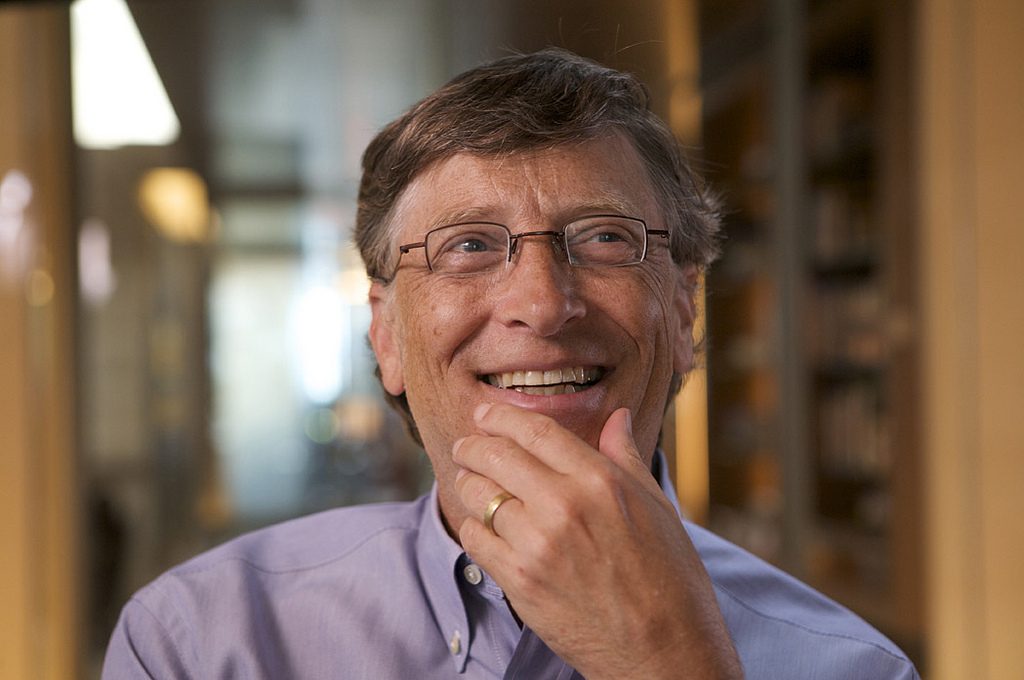A number of highly influential investors are injecting significant revenue into the plant-based and clean meat food tech spaces, leading to a transformation in the vegan food system.
Bill Gates has invested in lab-grown meat startup Memphis Meats and was an early investor in plant-based meat company Impossible Foods. Founder of the Virgin Group Sir Richard Branson is also an investor in Memphis Meats. Leonardo DiCaprio has investments in Beyond Meat and he also became a minority equity investor in the pea protein-based vegan snack brand, Hippeas. This past week, DiCaprio also became a board member and investor in Kingo, a Guatemala-based off-grid solar company to bring environmentally-friendly power to rural communities.
It is not just individuals who are helping to grow the vegan movement. Stray Dog Capital and Blue Horizon Corporation are two investment firms that focus exclusively on vegan businesses. Both invest in both large and small companies working to make a positive impact in the plant-based movement. Between the two, investments include Beyond Meat, SuperMeat, Good Seed Burger, Outstanding Foods, Memphis Meats, Alpha Foods, Heidi Ho, Hail Merry, Ocean Hugger Foods, and more. Lisa Feria, CEO of Stray Dog Capital, is also a member of the “Vegan Mafia,” a collective of vegan investors who want to help make the world less dependent on animal-based foods.
The impact that these groups have made shows. Last year, Bloomberg reported that “sustainable investments,” or investments focused on “assets that meet environmental, social, and corporate-governance goals,” had surged by more than $2 trillion in two years, making it an $8.7 trillion industry as of 2016. The 2016 Report on US Sustainable, Responsible and Impact Investing Trends notes that this makes up more than more than one-fifth of all investments that took place in the United States that year.

As if to meet the growing demand for those seeking to exercise effective altruism by investing in emerging businesses that have a positive impact on people, the planet, and animals, Cruelty Free Investing was created. The non-profit organization acts as a database of companies that do not harm animals. Its researchers have compiled a list of companies that are in line with its ethics of not bringing harm to animals (whether it’s for food, clothing, animal testing, etc…). Its researchers have analyzed ever publicly traded company in America.
Where have the investments led the industry?
Vegan options that appeal to vegans, vegetarians, and omnivores alike are rapidly making their presence known. Impossible Foods recently made its international debut in Hong Kong and plans to continue expansion in the US and Asian markets. The company also achieved another first this year when it partnered with fast-food chain White Castle to add Impossible sliders to the menu. Beyond Meat entered the international market in Hong Kong and partnered with meat distributor PHW Group to distribute Beyond Burgers to restaurants and grocery stores in Germany. Its latest product, the Beyond Sausage, is also now available in Whole Foods Markets across the US, and the Beyond Burger is available at meat-heavy chain restaurants like Bareburger and TGI Fridays.
Memphis Meats predicts that its clean chicken and duck meats will be ready for the market by 2021. While the meat and dairy industries are heavily subsidized by the US government (regardless of whether or not consumers want meat and milk), new industries that would have a positive impact on the environment must rely on investments or slow, organic growth. Without investors driven by creating a better future, Memphis Meats and other companies would likely not have been able to scale production at such a rapid pace.
Image credit: Memphis Meats / Bill Gates


